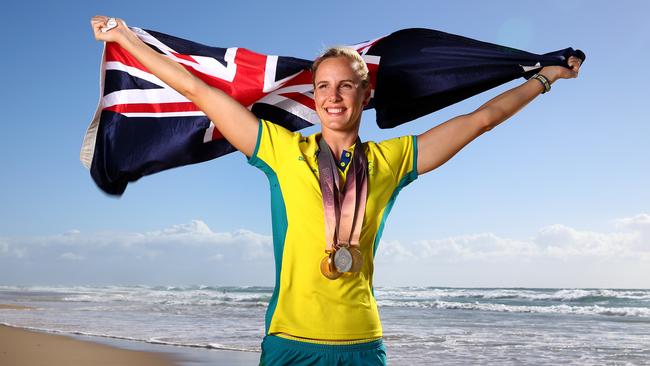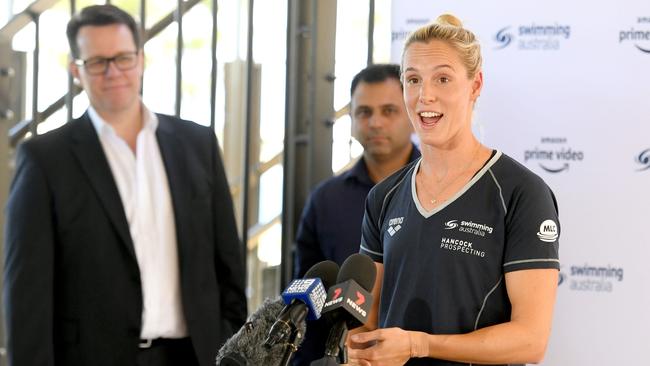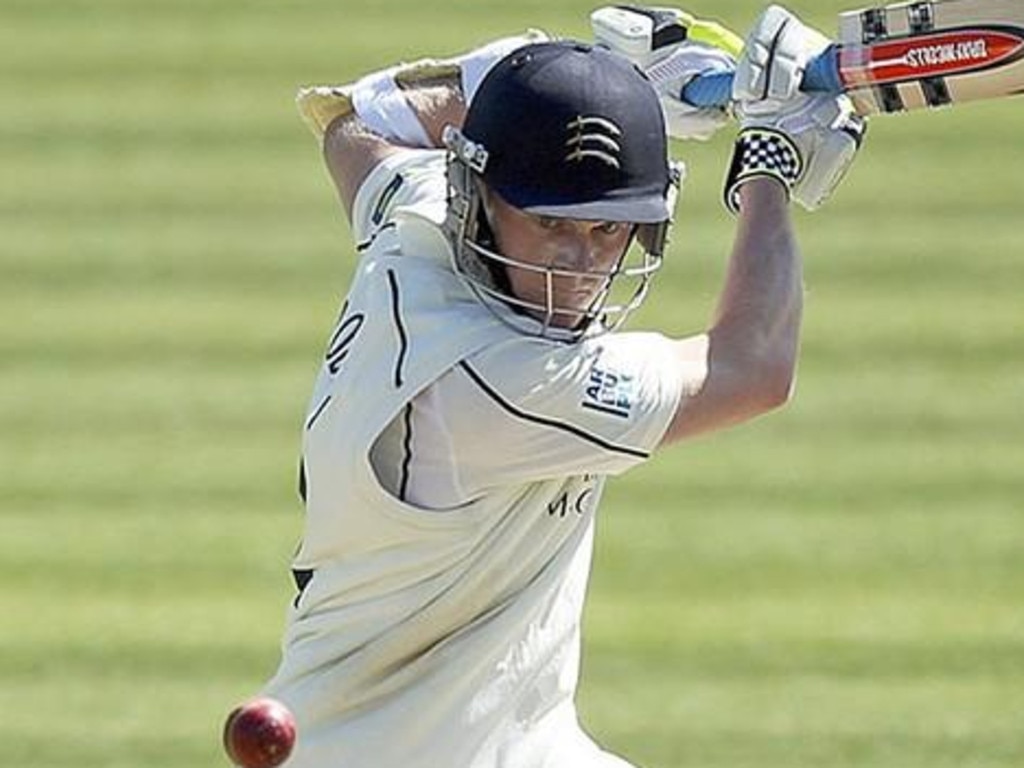Pandemic to give Australia a golden edge: Perkins
Swimming Australia president Kieren Perkins admitted that the COVID-19 pandemic could work to Australia’s advantage.

Two-time Olympic champion and Swimming Australia president Kieren Perkins admitted on Thursday that, as far as performances in the pool were concerned, the pandemic could work to Australia’s advantage.
While openly acknowledging all the pain and suffering the coronavirus crisis has caused and is continuing to inflict, Perkins did note that Australia’s decisive handling of the pandemic had produced a situation where the Dolphins should have a competitive edge over the rest of the world at the Tokyo Olympics in July.
“At the risk of making our head coach here sweat a little bit, we are in a better position (than the rest of the world) and that is something we should be aware of and taking advantage of as we go into these Games,” Perkins told The Australian.
Standing beside him, Australian head swimming coach Rohan Taylor did look momentarily uncomfortable but quickly adjusted. “It is one thing to have the advantage in advance but you still have to deliver on the day,” Taylor said. “You will be at an Olympic Games and there will be people showing up there that have prepared as well. But we have a great advantage now, for our athletes, to not having any impediments.”
It is Australia’s ability to stage regular competition that most decisively gives it the edge over its rivals, Taylor said.
“From what I’m seeing, in other countries (it) is really hard to get more people together to compete so they are running little satellite meets. So they are not getting the competition as much as we have and will do and that’s where I think (we’re in front).
“We’ve got a number of options to go places that are COVID-free. I’m not sure that other countries do.”
Perkins agreed. “It’s a good point, actually. All things considered, our problems are minuscule compared to the rest of the world. What are (swimmers) in England and France and Spain and America going to do? There are a lot of countries are much worse than us.”
The US has been forced to split its Olympic swim trials in half. “So instead of having 1500-odd athletes at one meet, they are putting the lower level qualifiers into a meet the week before and the first and second-placed athletes out of them will get to swim in the main trials,” Perkins said.

Australia does not intend to similarly scale down its Olympic trials in Adelaide in June — at this point. “We are definitely eyes wide open on that,” said Taylor. “It could come but we are operating as normal.”
Perkins, is concerned, however, that age groupers be exposed to the highest levels of national swimming possible. “Inevitably the six to nine months after an Olympic Games are when the next generation stands up and take their leadership position within the team.
“It’s really important we give our age groupers and that next generation every opportunity to keep training and racing so that in Paris we will have a super-strong team again.”
For the moment, however, it is the tantalising Tokyo Games, dangling mirage-like on the near-horizon, which is energising the Dolphins. Some 24 swimmers assembled at the Gold Coast Aquatic Centre for the first of a series of pre-Olympic training camps.
The occasion was also marked by the announcement that Swimming Australia and Amazon Prime Video had signed an exclusive two-year live broadcast streaming deal, to televise major Australian events globally on Prime Video. Not only will the Olympic trials be shown on Amazon Prime Video but also the qualifying events for next year’s FINA world titles in Fukuoka and the Birmingham Commonwealth Games.






To join the conversation, please log in. Don't have an account? Register
Join the conversation, you are commenting as Logout